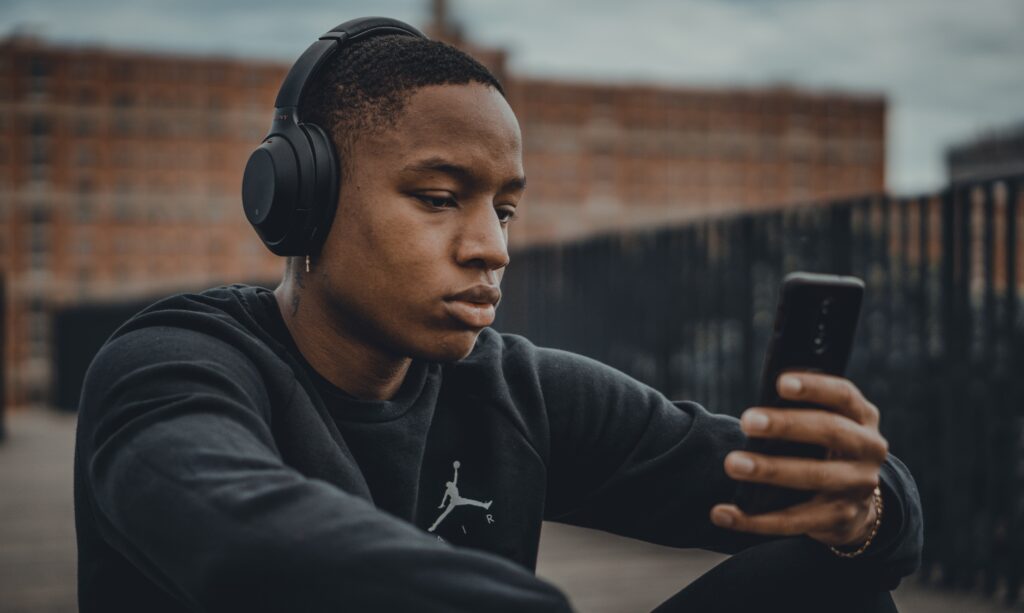Over the years of doing a Radio site targeting radio stations and the music industry, I’ve seen podcasting, audiobooks, music streaming, and online voice-over portals explode and completely change the broadcast industry. In this process, I was stunned to see several radio corporations sit idly by as if it would not affect them.
The only corporation that I can honestly say heard the train coming and got off the tracks by updating their brand and expanding is iHeartMedia.

They changed their name from Clear Channel and rebranded as a media corporation instead of a radio corporation.
And even though the corporation still has debt, their online and brand presence is stellar and the company does an excellent job of promoting everything they do.
Besides radio sitting idly by, I’ve also watched Newspapers all but disappear as well as the cable industry lose its power over consumers.
Newspapers have adapted by taking everything primarily online and charging subscription rates. It is rare that you see newspapers being delivered anymore and if you sit at your local coffee shop the only people reading newspapers are generally baby boomers and older.
Cable could have saved itself years ago by offering smaller packages of perhaps 10 channels instead of a whopping 500 (exaggerating) channels that nobody has time to watch.
Now hundreds of smaller digital apps and Netflix are doing what cable should have been first with.
Newspapers, radio, and cable have pretty much all been in the same grouping for many years and all were a way to communicate with the listeners, viewers, and readership.
What Radio Was and Is
Radio was basically the liaison between the music, stars, and listeners. DJs were the narrators or the hosts that brought that music to the listeners and with Black radio, community service programs and news were the highlights on radio stations. Fans would get excited when a star would call in or appear on the morning shows of many radio stations.
Today, listeners have direct access to the stars via social media. Even to the point that they can have conversations with them sans the radio middleman via DMs. 20 years ago, even 10 years ago that was unheard of. But that’s not all…
Black radio stations were bombarded with syndicated shows like The Tom Joyner Morning Show and The Steve Harvey Morning show primarily. Today there are several other morning shows that are syndicated.
This process interrupted the cycle of a DJ moving up the ranks at a radio station. Usually, he or she would start as a part-timer, then they would work the dreaded graveyard shift, then they would either get nights or middays, then they would get the coveted afternoon drive show then finally the morning shift.
Syndication stopped that process. The morning show was the apex of a jock’s success but with syndicated shows blocking the opportunities, many potential radio DJs lost interest in radio. Many potential stars in the radio game, left or were booted out.
During that time, podcasting was starting to take over as well as online video portals like YouTube.
Radio DJs are generally one-trick-ponies so I was not surprised to see many of them not jump on board with the burgeoning, more financially beneficial, technology right before them like a Youtube channel or podcasting. They wanted to be on the air or nothing at all.
Now, there is a shortage of DJs and radio is thinking they can pull people from the podcast industry to be DJs.
While they may have some luck, these people would be coming into the industry without training but with leverage.
Influencers, Podcasters and Radio DJs
The really sad thing about it is, they will make more money than trained jocks who have been working at the craft for many years because of their followers and influence.
It’s a very unfair and a double-edged sword because corporations are uber protective of their brands so radio DJs have been under strict rules as to what they can post to social media and how they have to represent the station.
On the other hand, influencers are picked because of what they post which enables them to garner many followers. This by and large is what has allowed them to get followers and what has kept radio DJ followers numbers much lower.
Several radio program directors have admitted to us that they are having a hard time finding quality DJs and finding podcasters is the next step.
V103 in Atlanta tried it with influencer and singer Jade Novah and it didn’t last very long. To be fair they also hired J.R from JR Sports Brief who had amassed 80 million views as an inexperienced sports show on Youtube that he started from his bedroom.
He did end up getting a syndicated show with Audacy and is based out of Atlanta. He got his syndicated show within a short period of time and things worked out for him.
Nikki Blades, a model with 260,000 followers is on the air at 997 Now and she just joined The Bassment with Real 92.3 in Los Angeles. On the station’s site, she is described as “Nikki Blades a member of 99.7 NOW’s Morning Show, a Podcast Personality, entrepreneur, model and athlete with a strong social media presence.” Commercial radio DJs are rarely described like this.
There are others who have made the transition to radio as well like Jason Lee at iHeartRadio. Lee had a successful video podcast Hollywood Unlocked before joining iHeart as well as being on Love and Hip-Hop LA. He was put on by Charlamagne and now has a weekend show on many iHeart stations. Lee is a natural. But the point is if radio stations are going to benefit it’s going to cost them a lot more financially to use social media influencers.
Commercial Radio Will Survive But it will Also Change
The question also is do the influencers want to be on a corporate leash when they are making so much more money running their own social media channels over dealing directly with corporations and ad agencies?
Radio likes to have control of the money and in these cases that’s will be all but gone and a smart influencer will make sure their contract allows them to continue to operate as an independent entity.
Where does this leave today’s radio DJs?
Unfortunately, corporate radio stations have to make a choice between advertisers, syndication, influencers, and DJs. I have to say DJs, at least local DJs, are probably not going to prosper in this case.
Radio stations depend on a rating system called PPM (Portable People Meter) it’s a company owned by Nielsen. Basically, a sample population is given a beeper-like device to wear all day and it picks up the radio stations they listen to and this is how stations are rated.
Why do radio stations play the same songs so much?
PPM, that’s why they have to play the researched hits to keep people listening and not changing to competitor stations. This is how radio makes its money (ad dollars) the higher the rank the more they can bill.
There’s not enough new music out there…
Yes, there is. and that’s a complaint I have heard more times than I care to remember. The truth is there is a TON of new music out there. The record labels produce it all the time and a lot of it is amazing and expose-worthy.
Independent artists produce it all the time. And for the longest time neither had an outlet, then came streaming.
Below is a chart of what people search for online when it comes to new music discovery. This chart was created by TheIndustry.biz via Ubersuggest.com
Listeners now have options where they don’t have to depend on radio anymore and don’t have to hear the same songs over and over. They can create their own playlists and hear their favorite songs any way they want.
You would think this would be a signal for radio to make a change in the music playlists and to add more songs. Unfortunately, it’s not. And it’s understandable.
PPM is still dominating the radio industry and if they want the revenue they have to play familiar songs. So commercial radio is stuck.
What will happen to radio?
In talking to contacts at the record labels and other entities radio is no longer the behemoth it once was, it is still important but instead of being THE outlet, it’s now one of the outlets. Most labels are making a million dollars a day and more with music streaming. Radio can not compete with that and with more outlets and apps appearing online the outlook does not look good UNLESS commercial radio adapts.
Radio Corporations See the Future
Make no mistake, radio corporations are doing their best to prepare for the unknown. As I stated early iHeart is a multi-media company that has bought up a very large percentage of the bigger podcast companies to dominate the podcast industry and to have more to offer to their advertisers in the form of content.
Radio One is working on owning a huge gambling Casino in Richmond VA which they have pretty much been approved for and Entercom recently changed their name to Audacy to also be more of a media corporation instead of just a radio company.
Move or BE Moved
The radio DJs are the only ones who are in a questionable position if they are playing the game and wait-and-see instead of looking at other ways to monetize or leverage what they do or have done.
























